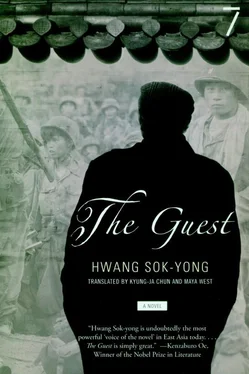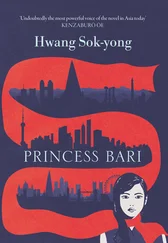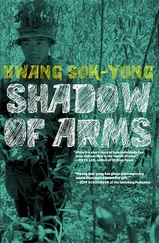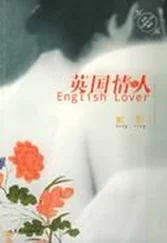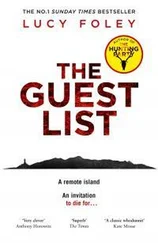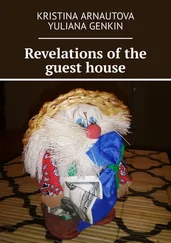The blazing sun beat down on the concrete of the museum’s front yard — Reverend Ryu Yosŏp felt as if the heat were sucking up all the moisture in his brain and heart. What different colors he and his brother Yohan must have used as each of them painted their own picture of home, of the carnage. These people have constructed yet a different vision of their own, Yosŏp thought to himself, but it all stems from the same nightmare, the one we created together.
Crossing the street, they walked up to a small mound covered by a flower bed. Facing the building was a green tract of land, somewhat elevated from the rest of the ground, which was topped by a square, chimneylike structure. The guide identified it as an air shaft that connected with the underground air-raid shelter.
“The beasts poured gasoline through this hole. This air-raid shelter was initially built during the Japanese occupation, but it was also used as Sinch’ŏn’s main shelter during the Korean War. Shall we go in?”
A single lightbulb hung at the bottom of the steep staircase. The inside of the structure was completely sealed in with concrete. The ceiling was covered in a thick layer of soot and what had once been a latticed wooden pillar in the passageway was now a vertical heap of charcoal. Here and there, the decaying cement wall had crumbled away. “This is the place where nine hundred innocent people were shut up. They all burned to death,” whispered the museum director to Yosŏp from behind. “Look over there, in front of the ventilator. Fingernail traces.”
Yosŏp saw the marks in the wall. The scratches looked as if they’d been made with a knife or a piece of glass. He spotted clumps of synthetic fibers that looked like clots of burnt hair.
It grew hotter and hotter outside as noon drew near. Despite the fact that Sinch’ŏn was supposedly quite a large county, not one person was out on the deserted street. It was a busy time of year for farmers — perhaps that was why. As they recrossed the street to return to the car, something fluttered through the air, riding a whisper of a breeze. Trembling, it wavered up and down, finally falling to the ground after sticking for a moment to the side of a building as it slithered its way down. Yosŏp stopped for a moment to take a look. Judging from the big and small letters, it was probably a page out of some newsletter or magazine. That was all, nothing more. The blinding sunlight reached about halfway down the main street of the town; the square cement buildings, the painted blue window frames, and the glass windowpanes, too, were all divided into light and shadow as if pieces had been cut away. In the perfect silence, only certain sections could be seen distinctly, as in a dream, and when a man happened to come into view, walking slowly into an alleyway up ahead, his movements appeared two dimensional, like a figure moving across the monitor of an old video game console.
The site of the Wŏnamni massacre was located on a thickly wooded hillside. Two storage buildings remained standing, one above and one below the slope; the exhibition itself was in a separate, newly built structure. Displayed inside were various photographs and remains. Visitors were filing through, lined up two abreast, making their way up and down the steps and listening to their guides’ comments. The buildings had once been used, as Yosŏp well knew, as warehouses for storing fruit. According to the guide, they were later used to store gunpowder during the war. There were bullet holes here and there, but the walls, charred by some past fire, had been left largely untouched.
“‘The mothers will be too content if we allow them to stay with their children,’ said the brutes. ‘Tear them apart at once, and lock them up separately! Let the mothers go mad with worry, calling for their little ones, and let the children die crying for their mothers,’ declared the beasts. Brandishing their swords and guns, the murderers tore the children from the bosoms of their mothers, who fought desperately to keep them. They locked the babes up in a different storage building. The heartrending cries of the children calling for their mothers and the pitiable wailing of the mothers asking for their children — it was all too much. Hungry for blood, the fiendish monsters poured gasoline and straw over the heads of the surviving women and children and set them on fire, and then, as if they hadn’t already done enough, they threw in grenades. In these two storage buildings alone, 910 innocents, including 400 women and 102 children, were slaughtered in cold blood.”
Yosŏp looked at the pamphlet he had been given at the entrance. It had fuzzy photographs of the crime scene and some written material. Included was a witness account:
When I opened the storage door, I found layers and layers of the children’s dead bodies in a heap right up against the door. It was obvious that they’d all been trying desperately to get out. Some had frozen to death, others had died of starvation, and still more had been burnt to a crisp. Most of their fingernails were broken off and clotted with blood — it was plain to see that they had done everything they possibly could to try to escape their agony, up until the very last moment.
On the hill to the right of the storage building were two burial mounds, one for the 400 women and another for the 102 children, each as high as that of a royal tomb. Two stones had been erected, one on each side, and a line of people were queued up to pay their respects.

By the time they returned to the county hall back in town it was way past one in the afternoon. Of everyone in the group, Yosŏp was the most exhausted. Their lunch was already laid out and waiting for them in the dining hall, a treat from the party secretary. All five sat down together at the table: their host, the director of the museum, All Back, Reverend Ryu Yosŏp, and the female museum guide. Yosŏp used a cool, wet towel to wipe the back of his neck and around his eyes, then gulped down a glass of Sindŏk Spring Water. All Back, the guide from the capital, spoke first.
“You must be hungry. It must be quite tiring for you to visit so many places.”
Feeling a bit dazed, Yosŏp just sat there. For some reason, nobody else seemed to feel like talking. Without even a cursory smile, the party secretary raised his hands, palms up.
“I know it’s not much, but let us eat.”
There were two bottles of white wine on the table and, without a word, the party secretary opened one of the bottles and held it out to Yosŏp.
“I don’t really drink. Besides, it’s only lunchtime,” said Yosŏp quietly.
“Come, just take a glass — you don’t have to drink it. We had this brought out especially for this occasion.”
The museum director seemed determined, so Yosŏp had no choice but to accept a glass. As soon as it was filled, the director thrust his own glass right under the party secretary’s nose.
“Here, here, fill it to the brim, now.”
Showing no emotion of any kind, the party secretary filled up the director’s glass and offered the same to the guide, too. The rice was white rice and the soup was fish soup. There was also fried pork, greens, vegetable pancakes, toenjang tchigae , lettuce, and sand anchovies, all tasty. Everyone ate and finished their drinks in silence. The female guide bowed good-bye and returned to the museum. The rest of the company moved to the party secretary’s office for a cup of tea. The museum director seemed to be feeling the effects of the wine. He said, “I really can’t go on doing this; it’s infuriating. He’s party secretary, so he acts all grave and dignified, stroking his beard, and I’m like a python in a dry pond, circling round and round repeating the same old story, always about dead people.”
Читать дальше
